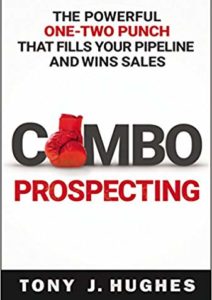Recently I caught up with Bernadette McClelland, CEO of 3 Red Folders. I asked for her opinion on the topic of key attributes of high performing salespeople. Bernadette is someone I respect, therefore here is an edited version of her response.
I’ve worked alongside hundreds of sales professionals, both in intimate groups or one-on-one. They have ranged from senior leaders to new sales trainees. There is probably a small handful of attributes that cause some to stand well above others.
There is an obvious pattern of behavior and discipline that seems to ooze out from successful salespeople. I should point out that success doesn’t only apply to those who hit the highest targets. A high performer can still be a high performer, but due to situational conditions they may not make it to #1 on the league table, or bring in the most money.
I’ve actually worked with and observed salespeople who, on paper, were high performers, but it occurred because they were at the right place at the right time. Or, they were handed prime accounts with low-hanging fruit. Put them in a more challenging environment and you would have to ask if they would still be high performers. It would be seriously interesting to line up some of those guys and girls from the 1980s to see how they’d cope in today’s uncertain reality.
So based on my own experiences, I believe there are only three leading attributes I would expect to see in a high performing salesperson. These would of course fall outside of common attributes such as passion, work ethic, and relationships.
- STICKING TO A PROCESS
- EXECUTIVE PRESENCE
- HAVING A HEALTHY RELATIONSHIP WITH MONEY
Each of these fit into my High Performing Model, being Strategy (Business), the Story (Behaviour) and the Science (Brain) behind a sales professional’s responsibilities.
Sticking to a Process
Under the heading of “strategy,” we really need to understand why we follow a sales process. We also need to grasp the impact when we don’t. If we don’t follow some sort of process, we lose the plot. The impact is measured in our speed to market, productivity level and lost opportunities.
Sticking to a process is a very important factor. By their very nature, however, salespeople are normally so intuitive and fluid, they don’t tend to listen or follow rules at the best of times. This is usually because processes are viewed as too limiting or too slow. A process also causes them to have to listen, which also can go against the grain of most. I understand! But life is much, much easier when you do.
Examples of sticking to a process include:
- Following a line of questioning and taking that questioning somewhere – like qualifying or clarifying
- Measuring pipeline velocity so you can track where you are and compete against yourself as to how quickly you can get your deal to completion
- Completing your CRM updates so there is a paper trail of next steps for others
- Helping the business (and others) in forecasting accuracy
- Knowing exactly where you are and so does everyone else allowing consistency, productivity, and results
Remember the new ABCs of selling – Always Be Contributing! And process helps you do that so effortlessly and easily.
Executive Presence
Next is the heading of “state.” How you show up is so very important. How you sound, how you walk, how you present your offering whether that be in an initial meeting or a boardroom, is critical.
Remember the law of consistency states that you will never be the person you aspire to be no matter what mask you put on until you see yourself that way. So, how do you see yourself when you are in moments of executive delivery:
- Are you really intimidated, or full of self-doubt, or unsure of what to say? If you are it will show up in your physiology, your language, your tone and your energy
- How confident are you in what you are saying and are you able to articulate your message in less than 10 words?
- Are you truly present and in the now within the conversation or are you drifting off and wondering what to say next?
- Can you close off one part of a conversation and begin another in an elegant and respectful manner?
Interesting points, don’t you think?
Having a Healthy Relationship with Money
Third comes the heading of “science.” This holds many facets, one of which is looking at a salesperson’s relationship with money. Good old moolah – the rise and fall of many businesses and personal relationships.
When you have a healthy relationship with money you see it for what it is – an exchange of value. But so many emotions get tied to money and it causes salespeople to discount or shy away from closing. Most people think it’s a fear of rejection but in my opinion, I don’t believe that to be the case. I believe it’s what they believe money to mean.
We know that psychology is linked to people’s beliefs about money but the interesting thing from a true science perspective (neuroscience being the science of the brain) is that if we are in a negotiating scenario, that situation activates a part of the brain responsible for anxiety and pain and even hunger. And this part of our brain (anterior insular) is closely linked to our digestive system which means that any gut feeling we have, is real.
So, strengthening our skillset is one area we can work on but the other area is to change our pattern of thinking and our rituals. How we do that is to look backward on my model to our state management and strategy.
These aren’t your usual attributes, but I believe we need to look more and more into what makes us tick from all three – strategy (business), story (behavior) and the science (brain). There is so much we can learn from all three and an area I am investing time and resources into because when I introduce all three to teams and leaders, it’s where the biggest bang for your buck occurs and where true shifts happen.
Top performing salespeople are empowered by Pipeliner CRM. Get your free trial of Pipeliner CRM now.












Comments